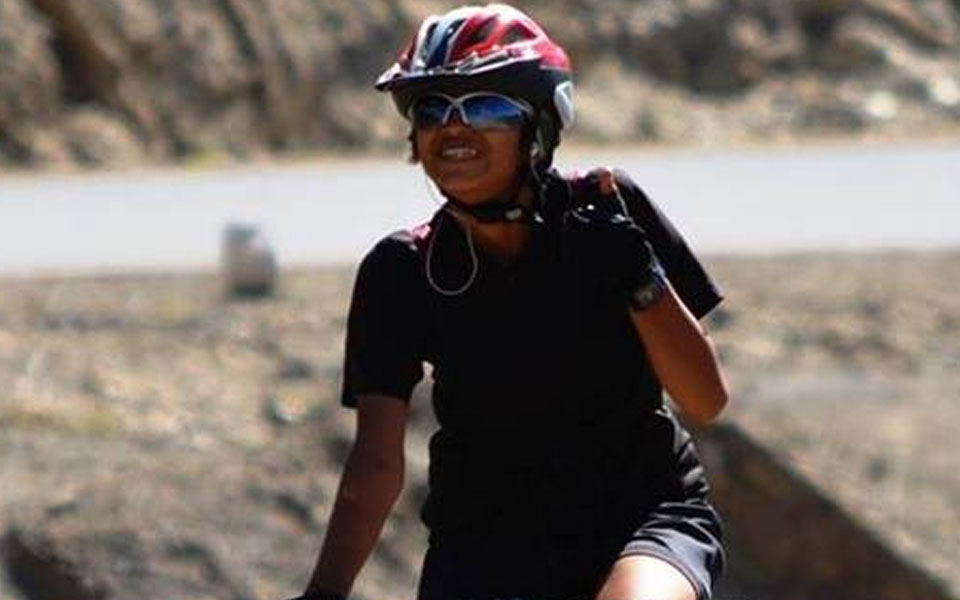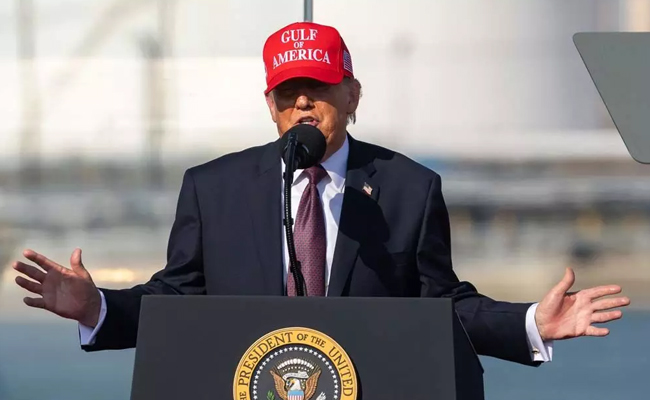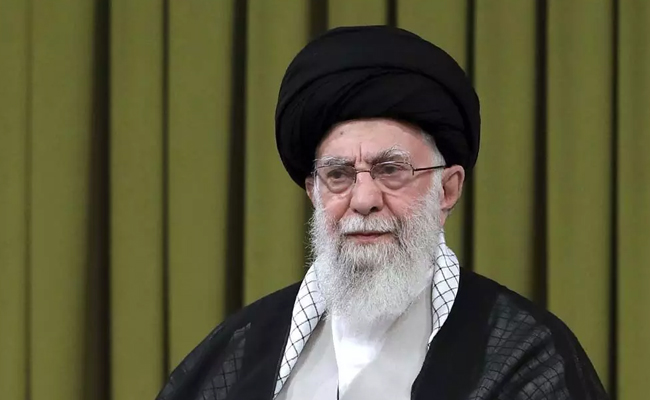Mumbai, Dec 23 : In an incredible feat for any Indian, 20-year-old Pune woman Vedangi Kulkarni has become the fastest Asian to cycle the globe.
Vedangi, who hails from a suburb of Pune, cycled into Kolkata in the wee hours of Sunday, completing the 29,000 km distance required to qualify as bicycling across the globe.
She started off from Perth in July and will now be flying back to the Australian city to complete the record.
Talking to PTI over the phone, Vedangi said the 159 days spent peddling up to 300 km a day in 14 countries has shown her the "best and worst" of both herself and also the world.
Her father Vivek Kulkarni said very few people undertake this gruelling campaign and his daughter has become the fastest Asian to cycle the globe.
British adventurer Jenny Graham (38) is the fastest woman to have cycled the globe in 124 days in 2018, which was three weeks faster than the previous record.
Elements, both human and natural, tested the Indian cyclist. This included being chased by a Grizzly bear in Canada or camping alone for multiple nights in the snow in Russia or being robbed at a knife-point in Spain.
There were troubles on securing the necessary visas as well, which cost her time. The visa process led to a delayed departure and consequently facing weather hostilities in Europe where winter had started setting in.
Vedangi, a student of the University of Bournemouth in the UK pursuing a degree in sports management, said preparations for the ride began about two years ago with long cycle rises, getting the equipment including a specially crafted cycle and planning the route and time window.
She did not have anyone accompanying her for over 80 per cent of the route, and lugged the cycle with the heavy luggage that includes cycle tools, camping equipment and clothing in desolate stretches all alone.
The ride was funded majorly by her parents.
Starting off from Perth, she cycled across Australia, through the outback, to reach Brisbane from where she flew over to Wellington, New Zealand, for doing the entire country north to south.
A short flight took her across the international dateline to Western Canada's Vancouver, from where she continued her eastward journey till Halifax, a port city.
Europe beckoned next and she chose the chilly Iceland to start it all up and later cycled through Portugal, Spain France, Belgium, Germany, Denmark, Sweden and Finland to enter Russia.
From Russia, she flew to India for doing the last 4,000 km. She encountered temperatures ranging from -20 degree Celsius to 37 degrees Celsius during the ride.
Vedangi credited her parents as pillars of strength who ensured she pulls off this ride and enters record books.
"My parents have done a great job in giving a 19-year- old (she turned 20 on the ride) all the required mental support and encouragement to explore the world, standing strong when the going got tough, always being on the other end of the phone and at not letting the curiosity die out due to ill experiences even though the parental instincts told them otherwise," she said.
Her father Vivek Kulkarni said, "It's her dedication and will power to achieve her dream which ensured the success and I am sure there are many more to come."
Vedangi, who entered the City of Joy in the wee hours, will be taking the earliest flight out to reach Perth and cycle a 15km distance to reach the same place from where she started her journey.
"I feel privileged being so close to the finish line with my parents by the side. We all can do better with a little more support from our own people. We all need someone who wont let that curiosity die!" said a beaming Vedangi.
Let the Truth be known. If you read VB and like VB, please be a VB Supporter and Help us deliver the Truth to one and all.
Dubai/Abu Dhabi: Residents and visitors across the United Arab Emirates received a fresh emergency alert on their mobile phones stating that the situation in the country is currently safe.
The message, issued by the Ministry of Interior (MOI), thanked people for their cooperation and reassured them that conditions were stable.
“Thank you for your cooperation. We reassure you that the situation is currently safe. You may resume your normal activities while continuing to remain cautious and take the necessary precautions, and to follow official instructions. (MOI),” the alert read.
The notification was sent in both Arabic and English through the country’s emergency alert system.
The advisory comes after earlier alerts warning of potential missile threats amid rising regional tensions. Authorities have urged the public to stay cautious and follow official guidance.





